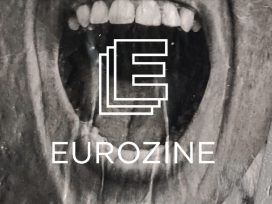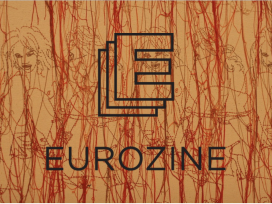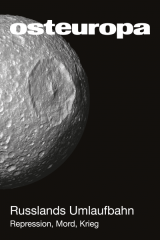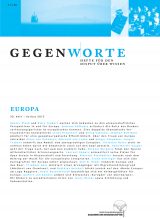Eurozine Editorial
Unsigned articles (News Items, Editorials, Introductions etc) are written by the Eurozine editors. See the about us section for more information.
Articles

Cautionary tales
Watch the 31st European Meeting of Cultural Journals
A Russian, a Turk and a Hungarian, all journalists, walk into a bar … well, an online talk, actually. Irina Borogan, Ece Temelkuran and György Kerényi spoke about censorship and repression, the impossibility of exile and the performance of care.

Bottom drawer
Let’s respect our foremothers: new focal point
Traditionally, young women used to be presented with goods as a send off into adult life. Today’s bottom drawers aren’t necessarily tied to marriage, nor are they strictly material. Yet, the bundle one leaves the house with is as important now as ever. In this focal point, we take stock of the notions our foremothers presented us with: women’s ideas and achievements that define our understanding of power, gender and violence, bodies, identity and agency.

Industrialized nations have heavily plundered natural resources for around 160 years. It’s now payback time. The US and EU, having just pledged to significantly reduce carbon emissions by 2030, link environmental recovery with economic opportunity. Will their innovation challenge coax other leading nations away from fossil fuels in time?

In an insane game of geopolitical musical chairs, some post-Soviet European states try to cast themselves as Central, although they don’t feel quite the same way about their neighbours. Why won’t they just identify with the East? A pair of reads from opposite ends of the Union offers fresh insight into the discourse of Central Europe.

Yet another independent outlet is slain in Hungary: Klubrádió just lost its broadcast license, resuming a decade-long campaign to silence the channel. Journalists march on, hoping for a lengthy legal battle to do them justice in the end. They have accommodated pressure, but their defiance comes at a high price.
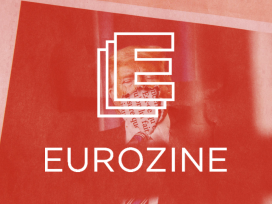
The US is facing a twisted, belligerent reality: rioters brazenly revealed their identity in an unmasked raid on the Capitol; the ‘Save America’ rally undermined the constitutional process; and incitement came from the person at the very top of the institutions being debased. All while COVID-19 is on the rise as America’s deadliest threat.

Darkest moments
Carving a way out of this gruesome year
Next year will be tough. Calendar cycles don’t solve anything. We need to tackle multiple crises and come to terms with our losses, both personal and social. Yet overcoming is always rooted in the firm belief that something else is possible. And not only that: it’s also ours to make.
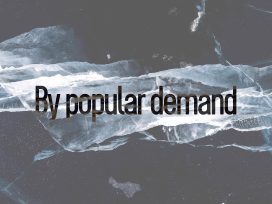
By popular demand
Our favourites from 2020
Here are some of the Eurozine Team’s personal favourites from this year’s publishing: reflecting on racial conflicts and gender relations, digging into urban soil and organizing tenants, being tired of video conferences and, inevitably, reckoning with death.
